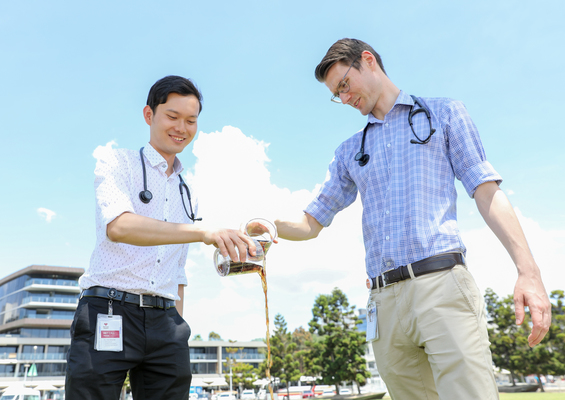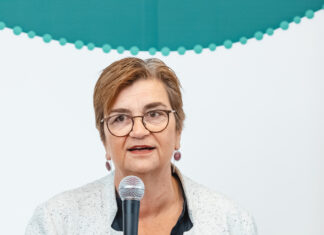A survey of almost 1800 Geelong residents has shown young Australians support a tax on sugary drinks, according to the study’s authors.
Medical students Tom Richardson and Brendan Yanada, both 27, surveyed 1793 people aged 18 to 30 for the study, which they published today.
The trainee doctors surveyed residents across greater Geelong, from Lara to the Bellarine Peninsula, in three weeks following their exams in November 2017.
“We both realised we were quite passionate about obesity,“ said Mr Richardson, who lives in East Geelong.
“We wanted to allow young adults to have their say. We did the bulk of the surveying and managed to recruit ten other medical students to help.”
About 48 per cent of survey participants supported a sugary drink tax, while 20 per cent opposed it and the remainder were undecided.
Surveyors questioned participants on a tax of 40 cents per 100 grams of sugar, equating to about 15 cents extra for a can of soft drink or 80 cents for a two litre bottle.
Support for tax rose to more than two thirds if its proceeds subsidised fruit and vegetables or exercise facilities, Mr Richardson said.
Federal Government and opposition last week ruled out a sugar tax, despite it being a key recommendation in a recent senate enquiry into obesity.
While Mr Richardson admitted there was “no silver bullet” for obesity, he said the survey contradicted parliament’s decision.
“I think the government has a responsibility to try to promote healthy living and behaviour.“
Greater Geelong had relatively similar demographics to the rest of Australia according to ABS data, Mr Richardson said.
Gender, weight, socioeconomic status and soft drink consumption had little impact on the survey results, he said.
Mr Richardson and Mr Yanada published the extracurricular study in today’s Australian and New Zealand Journal of Public Health.
Research supervisor and director of Deakin’s obesity centre, Colin Bell, congratulated the pair on their “Australian-first“ study.
“Young people are the highest consumers of sugary drinks, but there’s been no research until now to understand how they feel about a sugar-sweetened beverage tax,” Professor Bell said.
“This study shows they are clearly supportive if the money raised from a tax is used for health promotion.”









